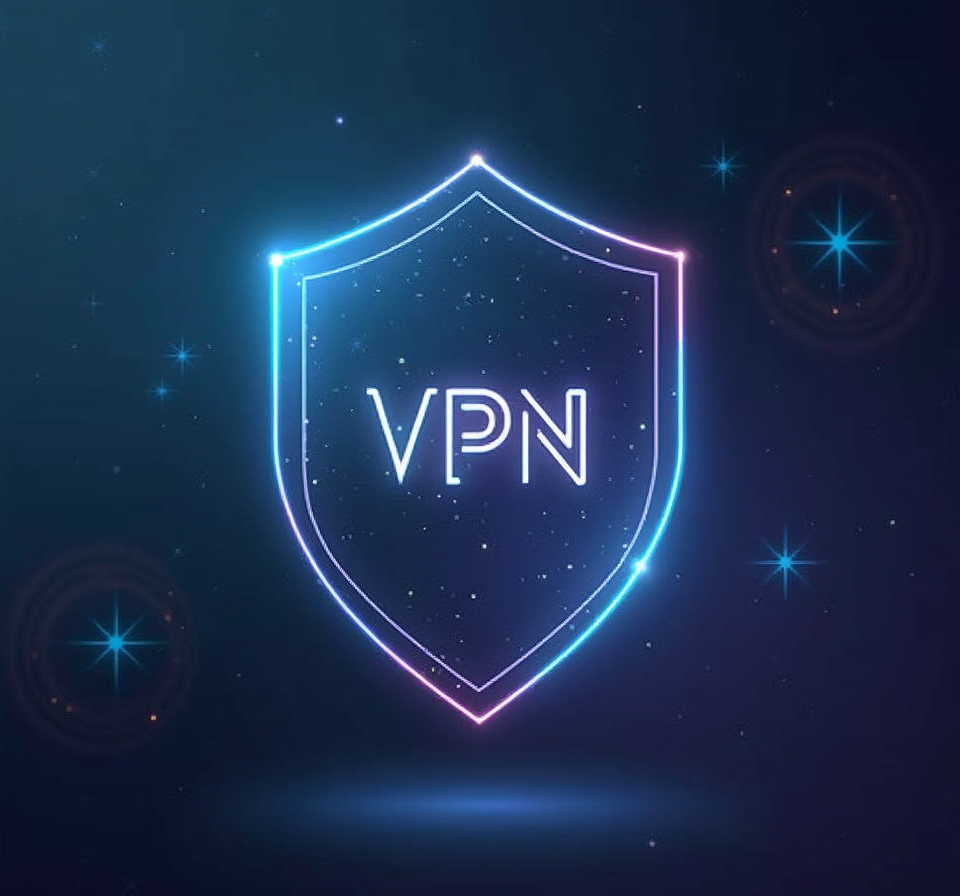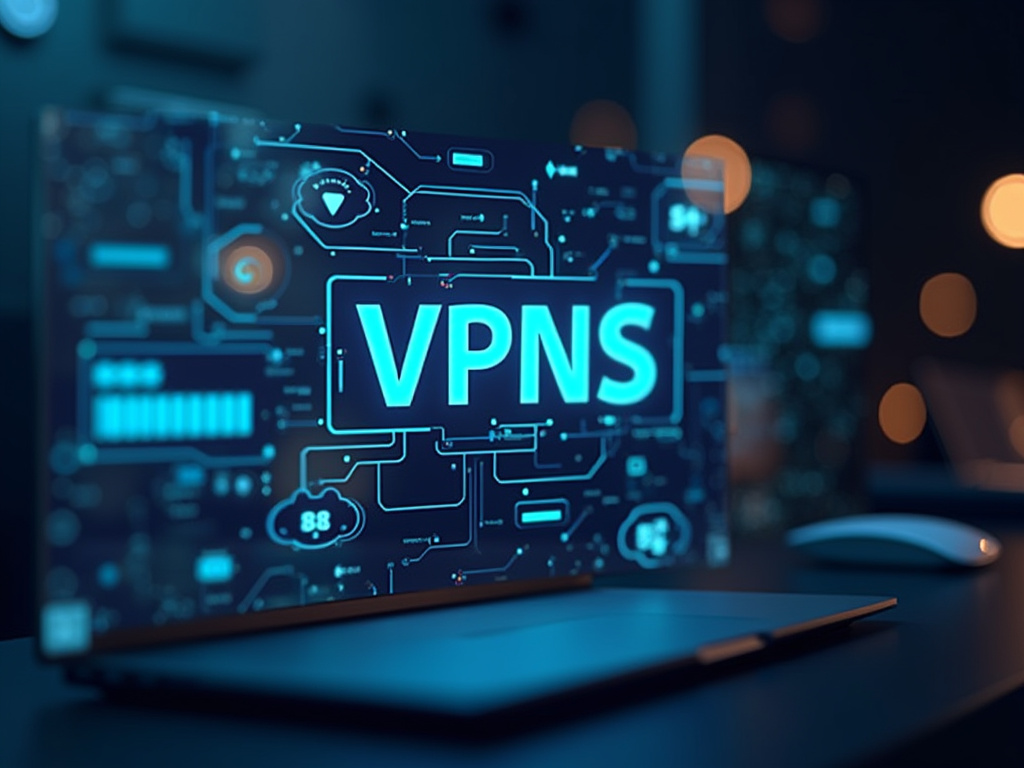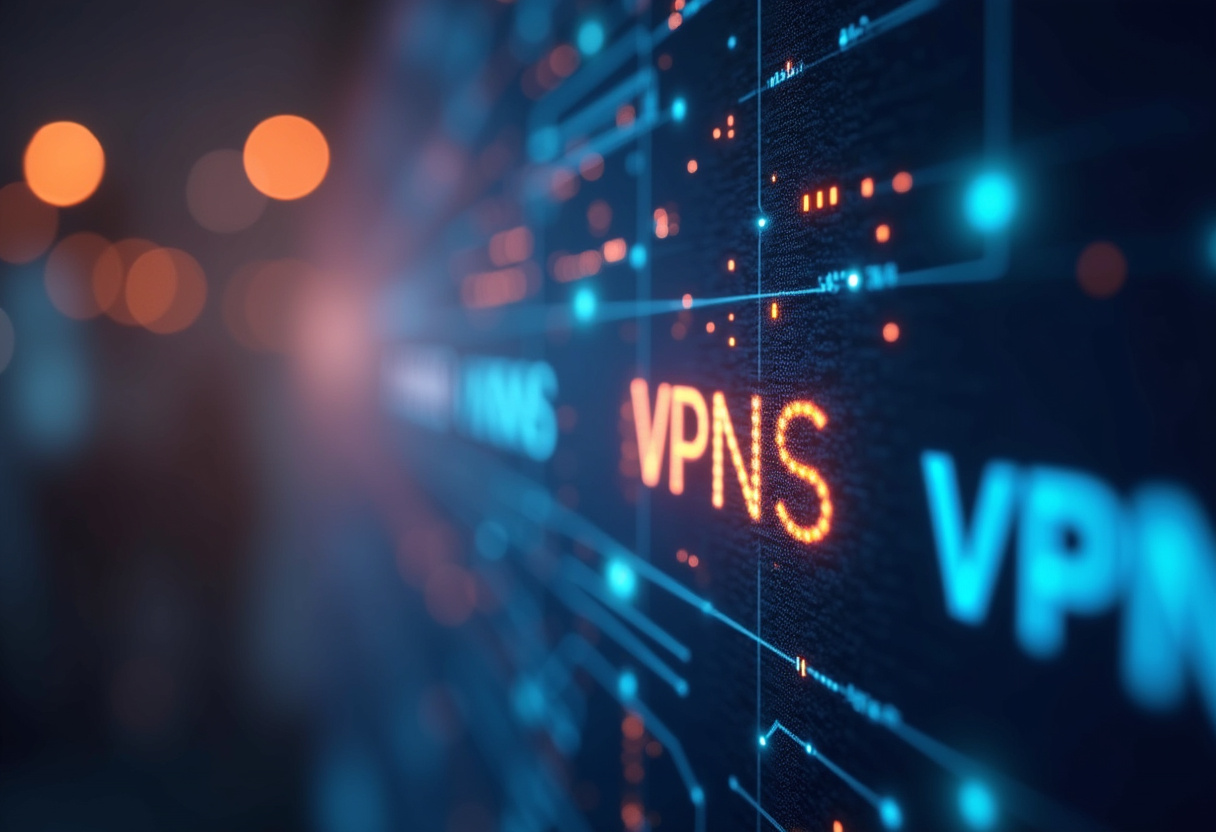The Ultimate VPN Buying Guide for 2025

Table of Contents
The Ultimate VPN Buying Guide for 2025: Secure Your Digital Life
In today's hyper-connected world, the need for online privacy and security is paramount. From safeguarding sensitive data while using public Wi-Fi to circumventing geo-restrictions and accessing content from around the globe, a Virtual Private Network (VPN) has become an indispensable tool for individuals and businesses alike. However, the burgeoning can be overwhelming, with a plethora of options vying for your attention.
This comprehensive aims to demystify the process, providing you with the knowledge and insights necessary to make an informed decision and choose the that perfectly aligns with your needs and budget. This guide will not only educate you on the core functionalities of a VPN but also delve into the crucial aspects of , dissecting the technical specifications and security protocols that differentiate various providers. Understanding these nuances is vital for ensuring that your chosen VPN offers robust protection and a seamless user experience.
Moreover, we will navigate the often-complex landscape of , analyzing different subscription models and highlighting factors that influence the cost. By understanding the intricacies of VPN technology and the competitive dynamics of the market, you can confidently select a service that not only meets your security requirements but also delivers exceptional value for your investment. Consider this: are you a casual user primarily concerned with accessing geo-restricted content, or are you a business professional handling sensitive financial data?
Your answers to these questions will significantly influence your VPN requirements. For instance, a casual user might prioritize ease of use and affordability, while a business professional would prioritize robust encryption and a strict no-logs policy. The choice between different VPN protocols, such as OpenVPN, IKEv2/IPsec, and WireGuard, will determine the speed and security of your connection.
OpenVPN is widely regarded as a highly secure protocol, but it can sometimes be slower than IKEv2/IPsec. WireGuard, a relatively new protocol, offers a compelling combination of speed and security. Understanding the strengths and weaknesses of each protocol is crucial for selecting a VPN that meets your specific performance requirements.
Similarly, the location of the VPN server network plays a crucial role in determining your internet speed and access to geo-restricted content. A VPN with servers located closer to you will generally provide faster speeds, while a VPN with servers in multiple countries will allow you to access content from those regions. Furthermore, the importance of understanding a VPN's logging policy cannot be overstated.
This policy dictates what data, if any, the VPN provider collects and stores about your online activity. A strict no-logs policy is essential for ensuring your privacy, as it means that the VPN provider does not retain any records of your browsing history, IP address, connection timestamps, or the websites you visit. Some VPN providers claim to have a no-logs policy but may still collect some metadata, which can potentially be used to identify you.
It is crucial to carefully review the VPN provider's privacy policy to understand exactly what data they collect and how they use it. Look for VPNs that have been independently audited by reputable third-party security firms to verify their no-logs claims. These audits provide an extra layer of assurance that the VPN provider is adhering to its stated privacy policy.
Another critical aspect to consider is the jurisdiction in which the VPN provider is based. Some countries have strict data retention laws that may require VPN providers to collect and store user data. Choosing a VPN provider based in a country with strong privacy laws can help protect your online anonymity.
The number of servers and server locations offered by a VPN provider can also impact your experience. A larger server network provides more options for connecting to servers in different locations, which can improve your speed and access to geo-restricted content. It is also important to choose a VPN provider that offers servers specifically optimized for streaming or torrenting, if those are activities you frequently engage in.
These servers are typically designed to bypass geo-restrictions and provide faster speeds. These factors, along with others detailed in this guide, will arm you with the information you need to navigate the VPN market and choose the perfect solution for your digital security needs.
One of the first and most critical steps in selecting a VPN is understanding your specific needs and usage patterns. Are you primarily concerned with enhancing your privacy while browsing the web, streaming content from different regions, or protecting your sensitive data when using public Wi-Fi? Identifying your priorities will help you narrow down your options and focus on the VPN features that are most relevant to you.
For example, if you frequently access streaming services like Netflix, Hulu, or BBC iPlayer, you should prioritize a VPN that is known for its ability to bypass geo-restrictions. These services often employ sophisticated techniques to detect and block VPN connections, so you need a provider that is constantly updating its servers and infrastructure to stay ahead of the curve. On the other hand, if you are primarily concerned with protecting your privacy while browsing the web, you should prioritize a VPN with a strict no-logs policy and robust encryption protocols.
A no-logs policy ensures that the VPN provider does not track or store your online activity, while strong encryption protects your data from being intercepted by third parties. Another important factor to consider is the number of devices you plan to use with the VPN. Many VPN providers offer simultaneous connections on multiple devices, but the number can vary significantly.
If you have a family or a household with multiple devices, you should choose a VPN that offers a sufficient number of simultaneous connections to accommodate everyone's needs. Beyond these core considerations, think about the specific features that might be important to you. Do you need a kill switch that automatically disconnects your internet connection if the VPN connection drops?
Do you need split tunneling, which allows you to route some of your traffic through the VPN while routing other traffic through your regular internet connection? Do you need dedicated IP addresses for specific applications or services? Answering these questions will help you create a more refined list of requirements and further narrow down your options.
Furthermore, consider the user interface and overall ease of use of the VPN software. A complex and unintuitive interface can be frustrating, especially for first-time VPN users. Look for a provider that offers user-friendly apps for all of your devices, with clear instructions and helpful support documentation.
Speed and reliability are also paramount. A VPN can slow down your internet connection due to the encryption process and the distance your data travels to the VPN server. Look for a provider with a large server network and optimized servers to minimize speed loss.
Read reviews and test the VPN's speed using online speed test tools to get an idea of its performance. Reliability is also crucial. You want a VPN that consistently maintains a stable connection and doesn't experience frequent drops.
Check user reviews and look for VPNs with a proven track record of reliability. The best VPN is one that you can easily use and consistently rely on to protect your privacy and security. Finally, don't underestimate the importance of customer support.
If you encounter any issues with your VPN, you'll want to be able to get help quickly and easily. Look for a provider that offers 24/7 customer support through live chat, email, or phone. Test the customer support by contacting them with a question or issue before you subscribe to see how responsive and helpful they are.
This initial assessment of your needs will lay the foundation for a more informed and effective VPN selection process. Think about your online activities – do you frequently download torrents? If so, you will need a VPN that allows P2P traffic and offers specialized servers optimized for torrenting.
Some VPN providers block P2P traffic on all or some of their servers, so it's essential to check this before subscribing.
VPN market
The is saturated with providers, each offering a unique set of features and benefits. To effectively navigate this landscape, it is crucial to conduct a thorough of different VPN options. Encryption protocols are at the heart of any VPN's security, so understanding the different types available is essential.
The most common protocols include OpenVPN, IKEv2/IPsec, WireGuard, and L2TP/IPsec. OpenVPN is widely regarded as the gold standard, offering a robust combination of security and flexibility. IKEv2/IPsec is known for its speed and stability, making it a good choice for mobile devices.
WireGuard is a relatively new protocol that promises even faster speeds and improved security. L2TP/IPsec is an older protocol that is generally less secure than the others. Beyond encryption protocols, look for VPNs that offer advanced security features like a kill switch, DNS leak protection, and IPv6 leak protection.
A kill switch automatically disconnects your internet connection if the VPN connection drops, preventing your data from being exposed. DNS leak protection prevents your DNS requests from being sent to your ISP's servers, which can reveal your browsing activity. IPv6 leak protection prevents your IPv6 address from being leaked, which can also compromise your anonymity.
Another important feature to consider is split tunneling. This feature allows you to choose which traffic is routed through the VPN and which traffic is routed through your regular internet connection. Split tunneling can be useful for improving your speed or accessing local services while still protecting your sensitive data with the VPN.
For example, you could use split tunneling to route your streaming traffic through the VPN while routing your browsing traffic through your regular internet connection. This would allow you to access geo-restricted content without slowing down your overall browsing speed. Server location and coverage are also key factors to consider.
A VPN with a large number of servers in a wide range of locations will provide you with more flexibility and options for connecting to the internet. If you need to access content from a specific country, make sure that the VPN provider has servers in that country. The closer the server is to your location, the faster your connection speed will generally be.
Also, consider the server load. A VPN with a large number of servers may still experience slow speeds if many users are connected to the same server. A provider that monitors and manages server load effectively will ensure consistent performance.
Don't forget to check the VPN's compatibility with different operating systems and devices. Most VPN providers offer apps for Windows, macOS, iOS, and Android, but some may not support Linux or other less common operating systems. Make sure to choose a VPN that is compatible with all of the devices that you plan to use.
Furthermore, consider whether the VPN offers browser extensions. Browser extensions can provide a convenient way to quickly connect to the VPN and protect your browsing activity. Some browser extensions also offer additional features like ad blocking and tracker blocking.
Finally, read reviews and compare the features of different VPN providers before making a decision. Look for independent reviews and avoid relying solely on the provider's marketing materials. Feature comparison tools can help you quickly compare the features of different VPNs side-by-side.
VPN prices
Navigating the complexities of requires a strategic approach. Understanding the different subscription models, identifying hidden costs, and recognizing the value proposition of various features are essential for making an informed decision that aligns with your budget and needs. Most VPN providers offer a range of subscription plans, typically varying in duration and price.
Monthly subscriptions provide flexibility but are generally the most expensive on a per-month basis. Longer-term subscriptions, such as annual or bi-annual plans, offer significant discounts, making them a more cost-effective choice for long-term users. Before committing to a long-term plan, consider whether the VPN provider offers a money-back guarantee.
This allows you to test the service risk-free and request a refund if you are not satisfied with its performance or features. Some providers offer 30-day money-back guarantees, while others offer shorter or longer periods. Beyond the subscription fee, be aware of potential hidden costs.
Some VPN providers may charge extra for features such as dedicated IP addresses, port forwarding, or simultaneous connections on more than a certain number of devices. Read the fine print carefully to understand the full cost of the service. Payment options can also impact the overall cost and your privacy.
Paying with a credit card is convenient, but it may reveal your identity to the VPN provider. Consider using alternative payment methods such as cryptocurrencies, which offer greater anonymity. Some VPN providers also accept payments through gift cards or other prepaid options.
Keep in mind that the often reflect the quality and comprehensiveness of the service. Free VPNs may seem appealing, but they often come with significant drawbacks. Free VPNs may have slower speeds, limited bandwidth, fewer server locations, and less robust security features.
They may also display intrusive ads or even collect and sell your data to third parties. In general, it's best to avoid free VPNs and opt for a reputable paid service that offers a balance of affordability and quality. When evaluating different VPN providers, consider the value proposition of their features.
For example, a VPN with advanced security features like a kill switch, DNS leak protection, and IPv6 leak protection may be worth the extra cost if you prioritize privacy and security. Similarly, a VPN with a large server network and optimized servers may be worth the investment if you need to access content from different regions or require fast speeds. The geographic location can also determine the as some countries may have some taxes that increase it's value.
Some providers offer different tiers of service, with each tier offering a different set of features and benefits, which can influence . Carefully weigh the cost of each tier against the features offered to determine which provides the best value for your needs. Remember that the cheapest option is not always the best.
Invest in a VPN that meets your specific security and privacy needs.
VPN market
In conclusion, navigating the and selecting the for your needs requires careful consideration of various factors, from understanding your specific requirements to conducting a thorough and analyzing . This has provided a comprehensive overview of the key aspects to consider when choosing a VPN, empowering you to make an informed decision that protects your online privacy and security. Remember to prioritize your specific needs, whether it's accessing geo-restricted content, enhancing your privacy while browsing, or securing your data on public Wi-Fi.
Identify the features that are most important to you, such as encryption protocols, server locations, no-logs policy, and kill switch functionality. Don't be swayed solely by marketing hype or promotional offers. Conduct independent research, read reviews, and compare the features and performance of different VPN providers.
Pay close attention to the VPN's privacy policy and ensure that it has a strict no-logs policy and is based in a country with strong privacy laws. Test the VPN's speed and reliability using online speed test tools and check for any DNS or IP leaks. Take advantage of money-back guarantees to try out different VPNs risk-free before committing to a long-term subscription.
Be wary of free VPNs, as they often come with significant drawbacks and may even compromise your privacy and security. Choose a reputable paid VPN provider that offers a balance of affordability, features, and performance. Furthermore, stay informed about the evolving landscape of online privacy and security.
The threats to your online privacy are constantly evolving. Regularly update your VPN software, and be aware of new privacy risks and security vulnerabilities. A VPN is just one tool in your arsenal for protecting your online privacy.
Practice good online security habits, such as using strong passwords, enabling two-factor authentication, and being cautious about clicking on suspicious links or opening attachments from unknown senders. Remember that online privacy is an ongoing process, not a one-time fix. By taking a proactive approach and staying informed, you can significantly reduce your risk of being a victim of cybercrime and protect your online privacy for years to come.
Select a VPN that aligns with your budget while providing necessary security. Ensure the VPN is cross platform. Following these guidelines, you can confidently navigate the complexities of the VPN marketplace.
Choose a VPN that seamlessly integrates into your digital lifestyle, providing you with the peace of mind that comes with knowing your online activities are protected. In your final considerations make a quick review of the points already mentioned to secure the knowledge.
Stay Updated
Get the latest VPN news, tips, and exclusive deals to your inbox.




